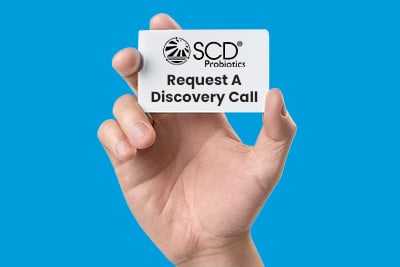Discover the benefits of using probiotics in hydroponics. Learn how probiotics boost plant health, improve nutrient uptake, and enhance growth in your hydroponic garden.
The Synergy Between Hydroponics and Probiotics: Enhancing Plant Health and Yield
Hydroponics, the method of growing plants without soil, is becoming increasingly popular among gardeners and farmers. But did you know that combining hydroponics and probiotics can lead to even healthier and more robust plants? Let's explore how probiotics can enhance your hydroponic gardening experience.

How Probiotics Work in Hydroponics
Hydroponic systems, despite being soilless, are not sterile and can face challenges in balancing negative microbes and fungi. Probiotics play a crucial role in maintaining this balance, promoting healthier and more productive plants.
Probiotics can help break down nutrients in the water, making them more accessible to plant roots. This can lead to more efficient nutrient absorption and healthier plant growth. In hydroponics, where nutrient delivery is critical, the enhanced nutrient uptake provided by probiotics can significantly improve plant vitality and yield.
Beneficial microbes can outcompete harmful pathogens in the root zone, reducing the risk of diseases. This is particularly important in hydroponic systems, which can sometimes experience an imbalance of microorganisms due to the absence of soil. By creating a balanced microbial ecosystem, probiotics help prevent diseases and promote a healthier growing environment.
Probiotics can also stimulate root growth and development, resulting in stronger and more resilient plants. A healthy root system is essential for the overall vitality of the plant, and in hydroponics, where roots are directly exposed to nutrient solutions, the benefits of enhanced root growth are particularly pronounced.
Why Our Microbes are Superior
Our probiotics stand out due to their unique formulation and fermentation process. At SCD Probiotics, we use a patented fermentation technology to grow compatible species of beneficial microbes together. This method enhances the microbial active functions and ensures that our microbes form a synergistic community that works more effectively as a system. This community includes 12 live strains from Lactic Acid Bacteria, Bacillus spp., Purple Non-Sulfur Bacteria, and Yeast all found in our SCD Bio Ag. Other reasons why our microbes stand out include:
- Dynamic Microbial Communities: Our products, contain a mixture of microorganisms from three groups that have been crafted together in small batches. This diversity promotes a more resilient and effective microbial ecosystem.
- Enhanced Enzymatic Activity: The fermentation process enhances the enzymatic activity of our probiotics, making them more efficient at breaking down nutrients and supporting plant health.
- Shelf Stability: Our probiotics are designed to be shelf-stable, ensuring that they remain effective over time and do not degrade before use.
- Proven Efficacy: Numerous case studies and scientific trials have demonstrated the effectiveness of our probiotics in improving plant health, increasing yields, and reducing the need for chemical fertilizers.
How Probiotics Enhance Hydroponics
- Improved Nutrient Uptake: Probiotics can help break down nutrients in the water, making them more accessible to plant roots. This can lead to more efficient nutrient absorption and healthier plant growth.
- Disease Prevention: Beneficial microbes can outcompete harmful pathogens in the root zone, reducing the risk of diseases. This is particularly important in hydroponic systems where the absence of soil can sometimes lead to an imbalance of microorganisms.
- Stronger Root Systems: Probiotics can stimulate root growth and development, resulting in stronger and more resilient plants. A healthy root system is essential for the overall vitality of the plant.

Using Probiotics in Your Hydroponic System
Incorporating probiotics into your hydroponic system is easy. Here are some steps to get you started:
-
Choose the Right Probiotics: Look for products specifically designed for hydroponic systems. These will contain strains of beneficial bacteria and fungi that are known to support plant health.
At SCD Probiotics, a product called SCD Bio Ag with a powerful blend of microorganisms and their bioactive compounds, which together convert nutrients into more plant-available forms.
-
Follow Dosage Instructions: Add the recommended amount of probiotics to your nutrient solution. This will ensure that the beneficial microorganisms are present in sufficient quantities to make a difference.
SCD Bio Ag can be used as a dilution to the system along with nutrient solution at only ¾ tsp. product per 10 gallons of water.
- Monitor Plant Health: Keep an eye on your plants to see how they respond to the addition of probiotics. You should notice improvements in growth, root health, and overall plant vigor.
Success Stories: Hydroponics and Probiotics in Action
Many hydroponic gardeners have reported excellent results after adding probiotics to their systems. For example, one gardener found that their lettuce grew faster and had a better taste after incorporating probiotics. Another hydroponic farmer noticed a significant reduction in root diseases, leading to higher yields and healthier plants.

Hydroponics and probiotics are a powerful combination that can take your gardening to the next level. By promoting better nutrient uptake, preventing diseases, and strengthening root systems, probiotics can help you achieve healthier and more productive plants. Give SCD Probiotics' products a try and see the benefits for yourself!






